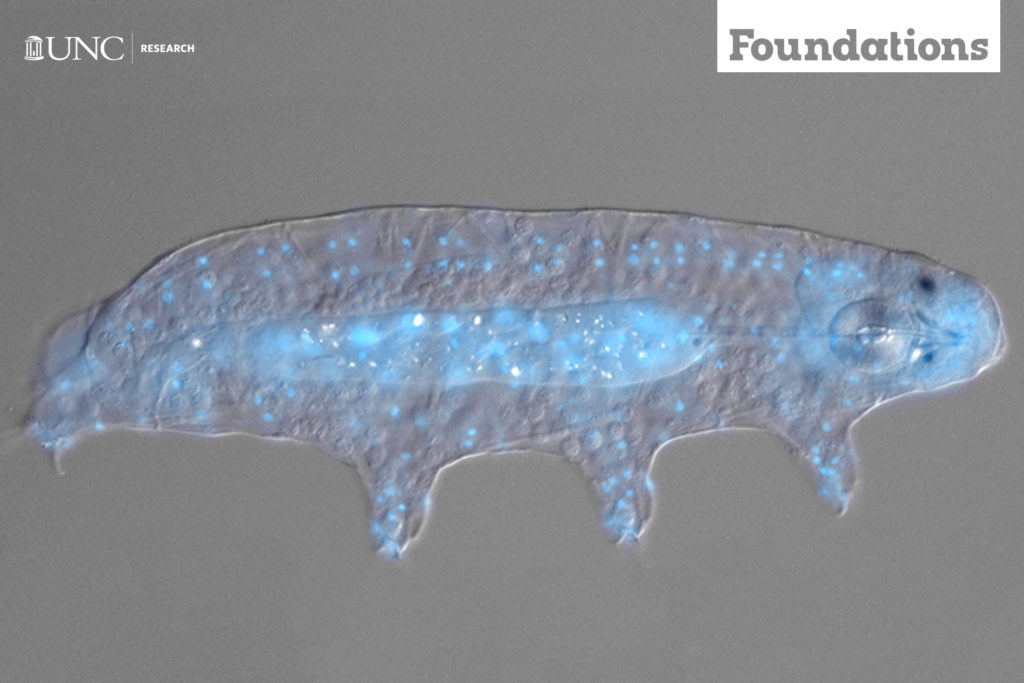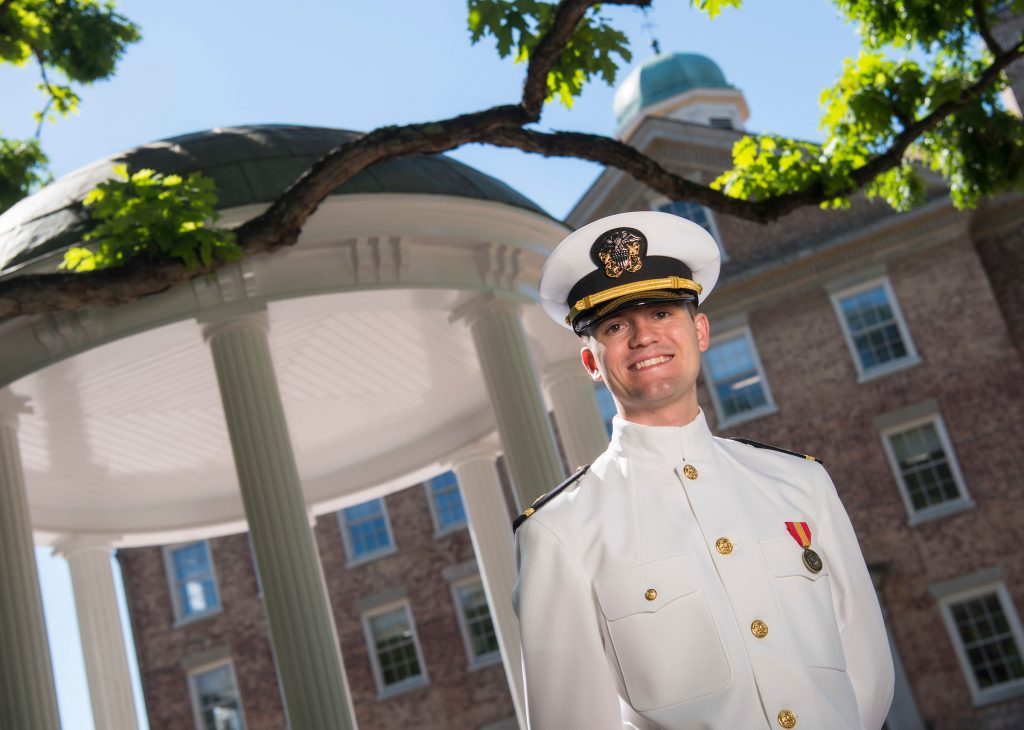
UNC-Chapel Hill researchers have received a $400,000 award to partner with the U.S. Military Academy at West Point to study changing the culture of concussion disclosure among military personnel and college athletes. They will develop an online interactive platform that provides a series of immersive training vignettes for those populations.
Eight winners of the inaugural Mind Matters Challenge, sponsored by the NCAA and the U.S. Department of Defense (DOD), were announced Feb. 5. The two entities joined forces more than a year ago with a goal of securing funding for compelling research that encourages a culture in which every head injury is reported and managed properly, rather than being concealed from peers, coaches, medical personnel, unit leaders or others.
Johna Register-Mihalik, assistant professor of exercise and sport science in the College of Arts and Sciences and a faculty member of the Matthew Gfeller Sport-Related Traumatic Brain Injury Research Center, is a co-principal investigator on the project. Stephen Marshall, professor in the department of epidemiology in the UNC Gillings School of Global Public Health and director of the Injury Prevention Research Center, is the other UNC co-PI.
 Kenneth Cameron, director of orthopaedic research for the John A. Feagin Jr. Sports Medicine Fellowship at Keller Army Hospital is the PI at West Point.
Kenneth Cameron, director of orthopaedic research for the John A. Feagin Jr. Sports Medicine Fellowship at Keller Army Hospital is the PI at West Point.
“While we work hard to prevent concussions, not every concussion will be prevented,” Register-Mihalik said. “We are proposing an innovative strategy aimed at targeting organizational norms and individual beliefs to help improve concussion disclosure.” This is important because many concussions go unreported in young and physically active populations, she added. Early recognition and management are critical to mitigate severe consequences and the potential long-term effects of concussion.
Register-Mihalik said the project will target incoming service academy cadets and NCAA student-athletes at West Point and UNC-Chapel Hill. It will focus on:
- Building a large database of key drivers of concussion disclosure. What makes people tell or not tell someone about a potential concussion? What are the factors that make people report this either individually or as part of a group?
- Developing an interactive and immersive online platform using gaming technologies aimed at changing attitudes, behaviors and norms to improve concussion disclosure.
- Forming a network of access to make this Web-based training tool freely available to NCAA colleges and military installations.
- Creating a research infrastructure to study how this approach works to change cultural norms, attitudes and behaviors around concussion disclosure.

Register-Mihalik said she is particularly excited about the development of an evidence-driven, Web-based educational tool.
“We want to create an immersive environment using current learning principles so that people come back time and time again to learn more and improve behavior. It has to be something they want to engage with,” she said.
She added that she is excited about the opportunity to work with West Point on this endeavor.
“This project will complement and enhance existing concussion prevention initiatives and research projects at UNC-Chapel Hill and at West Point,” she said. Both UNC-Chapel Hill and West Point are data collection sites in the NCAA-DOD Grand Alliance Concussion Assessment, Research, and Education (CARE) Consortium, an ongoing $15 million collaborative project to unravel the mysteries of concussion.
“These are our future military leaders, and this is a wonderful opportunity to create a culture of concussion disclosure from the starting point of their military careers that they will ideally carry forward to establish a culture of disclosure in future leadership positions throughout the Army,” she said.
Additional members of the research team at UNC-Chapel Hill include Kevin Guskiewicz, co-director of the Gfeller Center and dean of the College of Arts and Sciences; Heidi Hennink-Kaminski of the UNC School of Media and Journalism; Laura Linnan, professor of health behavior and associate dean for academic and student affairs in the UNC Gillings School of Global Public Health; and Paula Gildner of the UNC Injury Prevention Research Center.
Additional members of the research team at Keller Army Hospital at West Point include Colonel Steven Svoboda, director of the John A. Feagin Jr. Sports Medicine Fellowship, and Karen Peck and Megan Houston, both within the department of orthopedic research affiliated with the fellowship.




